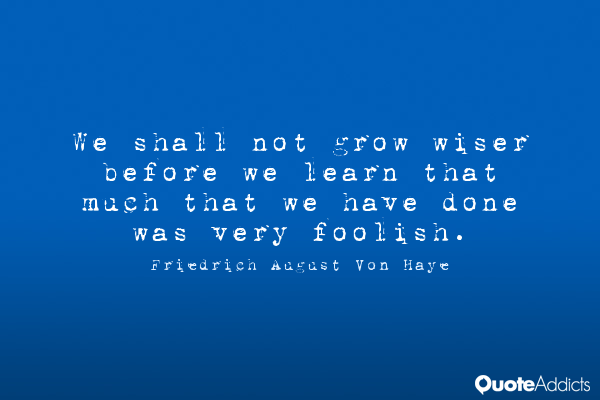
Blog
Wisdom: Our Keynote Speakers Have It
Wisdom is an invaluable asset for anyone who wants to be a leader in the business world.
We’ve curated our team of keynote speakers, in part, based on this principle. We want wise, well-seasoned speakers who have legitimate life experiences to back up what they’re saying during your convention, seminar or after-dinner event.
But getting wisdom isn’t such an easy thing. It usually takes a litany of success, failures and mistakes. Each one of these elements shapes our view of business and helps us take a sure-footed approach to our present operations or our future dealings.
While we may not have this repertoire of wisdom-building life events, that doesn’t mean we can’t pick up wisdom as we lead or participate in our respective organisations. We found a great article from The Huffington Post about this very topic.

In it, reporter Catherine Pearson outlines seven different “secrets” of wise people. We noticed that the majority of these principles are directly related to business. Based on some of the things we mentioned at the beginning of this post, can you guess what’s on the list?
Over the next few minutes we’ll explore a few of the secrets and talk about how they relate not only to business, but to the keynote speakers and guest speakers we showcase at Successful Speakers.
But before we get there, we want to point out that the benefits of wisdom reach beyond what happens at the corporate level. It can actually enhance your well-being.
As Pearson wrote (referring to a university professor she interviewed), “Wisdom … is something that can be cultivated, and the potential pay-offs are big: (The professor’s) research has shown that wise men and women enjoy improved well-being as they age, because they’re better able to deal with challenges.”
- Wisdom comes through learning from our past.
At Successful Speakers, we pride ourselves in offering a team of conference speakers who mix speaking talent with life experience. But here’s the key to experience: you have to learn from it. Having a life full of experiences without learning from them is like buying a dozen cars but never learning how to drive. All that horsepower does nothing for you.

Likewise, the potential power each life experience has is useless if you don’t learn from them. And many times, that learning is a matter of understanding our mistakes. Once we learn from our mistakes, we gain wisdom. It reminds us of a quote from Austrian economist Friedrich August von Haye, who said, “We shall not grow wiser before we learn that much that we have done was very foolish.”
The applications to our professional life are many, not the least of which is looking back on past mistakes in order to make expert decisions in the future.
- Meditating Your Way to Wisdom
The power of meditation isn’t such a big secret anymore. Business types from all around the world are proponents of this ancient tradition. Some recommend beginning your day with a few minutes of silence, where you visualize your day and your interactions. Others don’t limit you to a time of day, but rather consistency.
What we can gather from the emergence of the practices is that our ability to take a few moments to focus on our life amid a quiet environment helps us make sense of the day as it progresses. But this practice is more than just a trend.
According to Business Insider, one of the mechanisms that takes place during meditation enhances the way your brain works. Meditation appears to “strengthen communication between two areas of the brain involved in self-control and internal focus by reducing levels of a substance in the blood linked to stress.”
Not convinced? Check out this Business Insider article: “14 Executives Who Swear by Meditation”.
- Wise Up to Crises
This is perhaps the toughest lesson of all of these. Crisis, particularly in a business setting, produce a tremendous amount of stress. Why? Often the projects that produce the most stress are also the most important, which means jobs and livelihoods could be on the line. We tend to get the mentality, warranted or not, that our job is on the line.
Let’s say you fail and you lost your job? What happens next? For the wise, that answer is simple: cope with it, then move on. From a psychological point of view, coping with a crisis is an important aspect of moving forward from the crisis.
As Pearson’s university source said, “often the people who are considered wise beyond their years have survived a trauma, or several, and have effectively coped with it.”
Pearson goes on to point out (and rightly so) that it’s not just the big crises that can build our wisdom. Little ones can sharpen us as well: “Wisdom can also come from managing smaller problems … such as a really bad day at work, or someone cutting you off in traffic.”
Enough Wisdom for Your Organisation
Our team of guest speakers is a terrific source of wisdom for your organisation. As we said earlier, they’ve got the experiences to back up their speaking talent. And that experience has created a wise group of keynotes that help guide you or your team through their best and worst times.
To learn more about our speakers, contact us or visit our keynote speakers page.
Recent Posts
-
Working From Home — Ultimate Security Tips for a Safe Home Office
-
Unexpected Ways Stress Affects Your Body
-
The Worst Mistakes to Make When Working from Home
-
The Undeniable Worst Mistakes to Make in a Meeting
-
The Top 6 Myths About Leadership Debunked
-
The Best Apps for Busy Professionals
-
Is Telecommuting the Answer to Work-Life Balance?
-
The Importance of Career Goals to Boost Success at Work
-
The Shocking Dangers of Workplace Burnout
-
How to Restart Your Positive Emotions
























